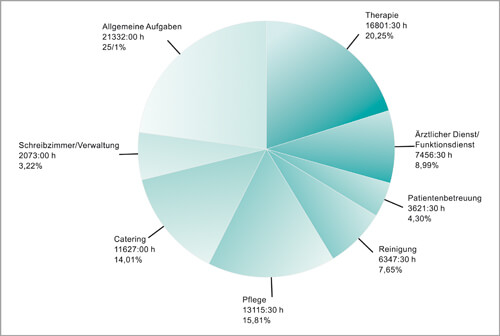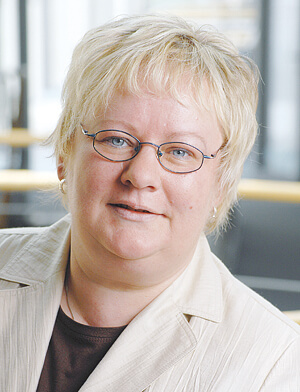Project period: September 2017 - December 2017
Consultants involved: 3
Initial situation
Services in care and health facilities are usually intensive in terms of personnel and often also capital. An operator of several clinics would like to fully exploit the optimisation potential with reasonable effort. In the processes at the clinic, transparency is necessary. This requires data on the duration of individual tasks and processes in the clinics.

Aim of the REFA counselling
Processes in clinic operations should be examined for economic potential that has not yet been tapped.
REFA approach
Carrying out an Activity sampling with self-registration, supplemented by process studies and Time studies for individual workplaces.
1st step
Preparation of the Activity sampling and creation of task and process lists (APL)
- Selection of Workflows/Processes to be examined
- Structuring the tasks and subtasks in these processes
- Creation of task-process lists with selected employees in workshops
- Information and briefing of the employees on the operation of the signal transmitter and presentation of the task list
2nd step
Implementation and supervision of the Activity sampling with self-registration (MMS)
Period of one month to take into account fluctuations appearing within one month
3rd step
- Determination of the share of individual processes and tasks in the total expenditure
- Determination of the expenditures for the individual areas
- Determination of the activity shares in relation to the individual tasks
- Determination of expenditures in relation to cost carriers
- Projection of the registrations to the actual hours worked and determination of the required expenditure for individual tasks in hours and minutes
- Evaluation of the registrations by means of standard software and determination of shares for individual tasks
- Determination of time fractions (scheduled times = Value creation) and allowance times (unscheduled times).
Through the temporal allocation of events, evaluations are also made with regard to the distribution of tasks and time requirements over the course of the day.
The Activity sampling can thus be used to identify tasks, processes, workplaces and areas where optimisation potentials lie fallow. These can now be examined more closely with process studies. Furthermore, the data contained in Self-registration can also be verified. Improvement approaches can be derived from the detailed insight into the process flows.
4th step

Carrying out Process studies/Time studies for selected processes and areas:
- The time requirements and, if necessary, other data are recorded for selected processes.
- The recording time is chosen in such a way that the actual situation is depicted in a representative way.
- The software solution REFA Time is used for data acquisition.
5th step
Evaluation of the process studies
- Quantification of the data from the activity sampling for measured processes and tasks
- Determination of scheduled and unscheduled times of individual processes and tasks
- Presentation of causes for blind and defective performances (costs are incurred, but no value is created)
- Identifying potential for improvement
6th step
Personnel requirement assessment
When assessing the personnel requirements, the necessary times per operation are determined for the scheduled tasks and multiplied by the operation quantities. Tasks that do not occur according to schedule are taken into account in the additional requirements.
Results of this consulting project
Through the professional involvement of the employees and the use of proven REFA methods, economic potentials could be identified and quantified. Afterwards, the interfaces between the areas in particular proved to be necessary focal points for design, so that in clinic operations the required resources can be deployed even better at the right time, in the right place, in the right quantity and with qualified personnel.




 Bettina Dirks
Bettina Dirks



